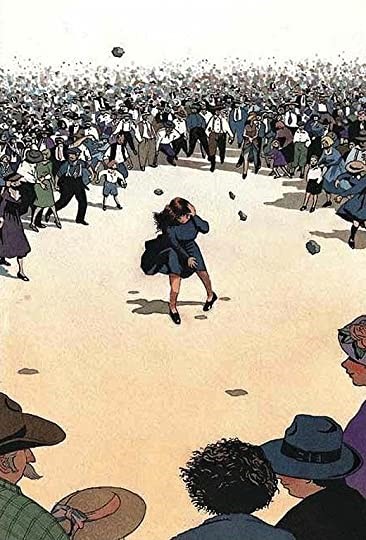
The Symbolic Meaning of Shirley Jackson’s “The Lottery”: Life as a Lottery
I have always loved this story and taught it many times during my college teaching career.
Of course the central theme of Shirley Jackson’s “The Lottery” is that blindly following tradition can lead to violence and cruelty.
But I think that the story is also a powerful allegory that uses the ritual of a random draw to explore the arbitrary nature of fate in human life. The lottery in the story symbolically represents how life itself can feel like a game of chance, where we are subject to outcomes beyond our control, regardless of personal merit or morality. Every day we take part in the lottery of life, and every day we may draw the paper with the black spot.

Hence, the story suggests that the randomness of the lottery reflects the unpredictability of existence itself. Just as Tessie Hutchinson is selected by pure chance, people in real life often experience serious misfortune or unexpected success without rhyme or reason. Jackson’s narrative forces readers to confront the unsettling reality that life’s “lotteries” are rarely fair.
My wife recently drew the paper with the black spot. In early May, she was diagnosed with glioblastoma, a sudden-onset, incurable form of brain cancer.

Glioblastoma is the most common and aggressive primary brain cancer, with a median survival of 12–18 months and a five-year survival rate of approximately 6.9% to 6.8%. It is most frequently diagnosed in adults over 65, with incidence rates around 3–4 per 100,000 people annually. These were her odds.
Your friend,
Robert
https://robertmcbrydeauthor.com/